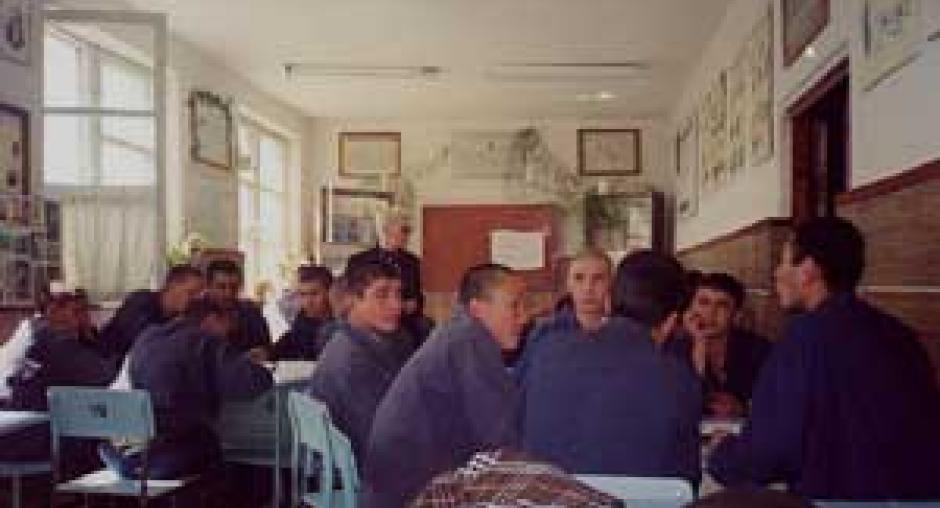Newsroom
OSCE Centre in Tashkent helps organize training for Uzbek prison staff in Poland
TASHKENT 1 November 2004

(OSCE)Scene from a prison in Uzbekistan (11 June 2004), where the OSCE Centre in Tashkent is supporting a long-term prison reform programme. (OSCE) Photo details
TASHKENT, 1 November 2004 - Senior staff of Uzbekistan's prison system today began a 10-day study visit to Poland as an important step towards implementing a comprehensive prison reform in their own country.
The programme in Poland's Kalisz prison training centre is organized by the OSCE Centre in Tashkent and Uzbekistan's Central Prison Administration.
The visiting group is made up of representatives from the Presidential Administration, the Interior Ministry and Uzbekistan's Central Prison Administration.
The Polish Association on Legal Education, which is assisting the OSCE Centre in Tashkent with the programme, will arrange visits to Poland's prison administration, the Justice Ministry and the Ombudsman's Office. The visitors will also meet academic staff and students at Warsaw University's Law Faculty.
The training programme includes lectures on Poland's penitentiary system, contemporary prison staff training and Polish and international experiences in this field. The Uzbek delegation will also participate in debates on prison issues and Kalisz Centre activities.
It also marks the start of close co-operation with the newly-established training centre in Tashkent for Uzbek prison service personnel. The centre will support the quality of teaching and increase expertise by introducing international penitentiary standards and norms, and teaching prison psychology, as well as latest methods of correction.
This initiative of the OSCE Centre in Tashkent is supported by the OSCE Office for Democratic Institutions and Human Rights (ODIHR).
The programme in Poland's Kalisz prison training centre is organized by the OSCE Centre in Tashkent and Uzbekistan's Central Prison Administration.
The visiting group is made up of representatives from the Presidential Administration, the Interior Ministry and Uzbekistan's Central Prison Administration.
The Polish Association on Legal Education, which is assisting the OSCE Centre in Tashkent with the programme, will arrange visits to Poland's prison administration, the Justice Ministry and the Ombudsman's Office. The visitors will also meet academic staff and students at Warsaw University's Law Faculty.
The training programme includes lectures on Poland's penitentiary system, contemporary prison staff training and Polish and international experiences in this field. The Uzbek delegation will also participate in debates on prison issues and Kalisz Centre activities.
It also marks the start of close co-operation with the newly-established training centre in Tashkent for Uzbek prison service personnel. The centre will support the quality of teaching and increase expertise by introducing international penitentiary standards and norms, and teaching prison psychology, as well as latest methods of correction.
This initiative of the OSCE Centre in Tashkent is supported by the OSCE Office for Democratic Institutions and Human Rights (ODIHR).
